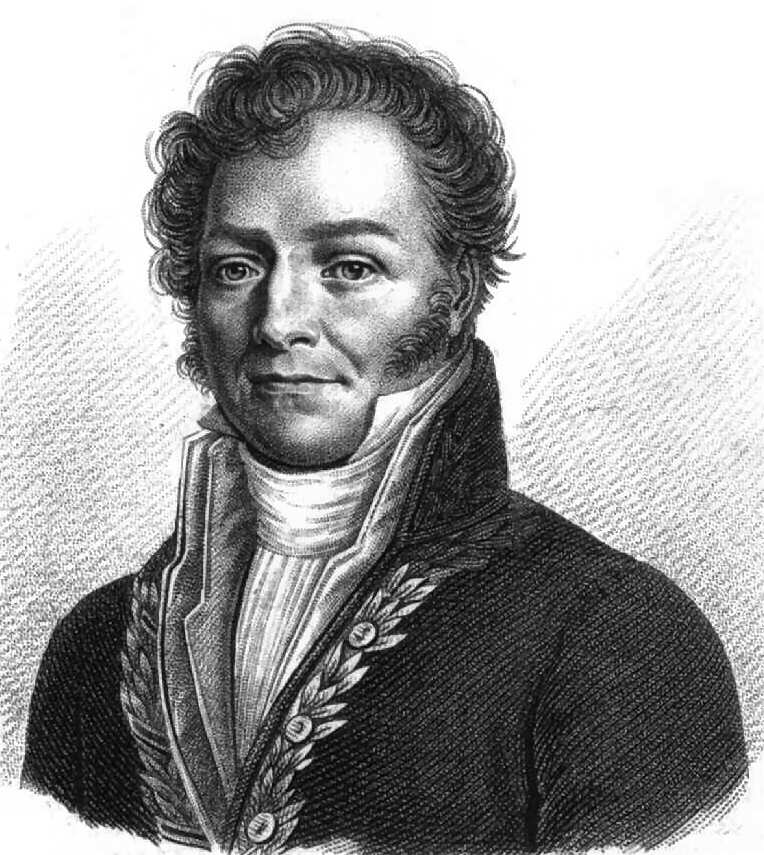- Louis Jacques Thénard
Infobox Scientist
name = Louis Jacques Thénard
box_width =
image_width =200px
caption = Louis Jacques Thénard
birth_date =May 4 ,1777
birth_place =La Louptière ,Aube
death_date =June 21 ,1857
death_place =Paris
residence =
citizenship =
nationality = French
ethnicity =
field =chemistry
work_institutions =
alma_mater =
doctoral_advisor =
doctoral_students =
known_for =
author_abbrev_bot =
author_abbrev_zoo =
influences =
influenced =
prizes =
religion =
footnotes =
Louis Jacques Thénard (May 4 ,1777 in the village ofLa Louptière ,Aube -June 21 ,1857 inParis ), was a Frenchchemist .His father, a poor peasant, managed to have him educated at the academy of
Sens , and sent him at the age of sixteen to studypharmacy inParis . There he attended the lectures ofAntoine François Fourcroy andLouis Nicolas Vauquelin . He was allowed into Vauquelin's laboratory even though he was unable to pay the monthly fee of 20 francs, due to the requests of Vauquelin's sisters.. [CathEncy|wstitle=Baron Louis-Jacques Thénard] and succeeded in gaining admission, in a humble capacity, to the latter's laboratory. But his progress was so rapid that in two or three years he was able to take his master's place at the lecture-table, and Fourcroy and Vauquelin were so satisfied with his performance that they procured for him a school appointment in 1797 as teacher of chemistry, and in 1798 one as "répétiteur" at theÉcole Polytechnique .In 1804 Vauquelin resigned his professorship at the
Collège de France and successfully used his influence to obtain the appointment for Thénard, who six years later, after Fourcroy's death, was further elected to the chairs of chemistry at the École Polytechnique and the Faculté des Sciences. He also succeeded Fourcroy as member of the Academy. In 1825 he received the title of baron from Charles X, and in 1832 Louis Philippe made him a peer of France. From 1827 to 1830 he represented the "département" ofYonne in the chamber of deputies, and as vice-president of the "conseil superieur de l'instruction publique", he exercised a great influence on scientific education in France. He died in Paris on the 21st of June 1857. A statue was erected to his memory at Sens in 1861, and in 1865 the name of his native village was changed toLa Louptière-Thénard .Above all things Thénard was a teacher; as he himself said, the professor, the assistants, the laboratory — everything must be sacrificed to the students. Like most great teachers he published a textbook, and his "Traité de chimie élémentaire, théorique et pratique" (4 vols., Paris, 1813-16), which served as a standard for a quarter of a century, perhaps did even more for the advance of chemistry than his numerous original discoveries.
Soon after his appointment as "répétiteur" at the École Polytechnique he began a lifelong friendship with
Joseph Louis Gay-Lussac , and the two carried out many researches together. Careful analysis led him to dispute some ofClaude Louis Berthollet 's theoretical views regarding the composition of the metallicoxide s, and he also showed Berthollet's "zoonic acid" to be impureacetic acid (1802). In response, Berthollet invited him to become a member of theSociety of Arcueil .His first original paper (1799) was on the compounds of
arsenic andantimony withoxygen and sulphur. In 1807, he began important research intoether s. His researches onsebacic acid (1802) and onbile (1807) deserve mention as well, as does his discovery ofhydrogen peroxide (1818). In 1799 he developed the pigment known as Thénard's blue in response to a request byJean-Antoine-Claude Chaptal for a cheap colouring matter.References
Wikimedia Foundation. 2010.
